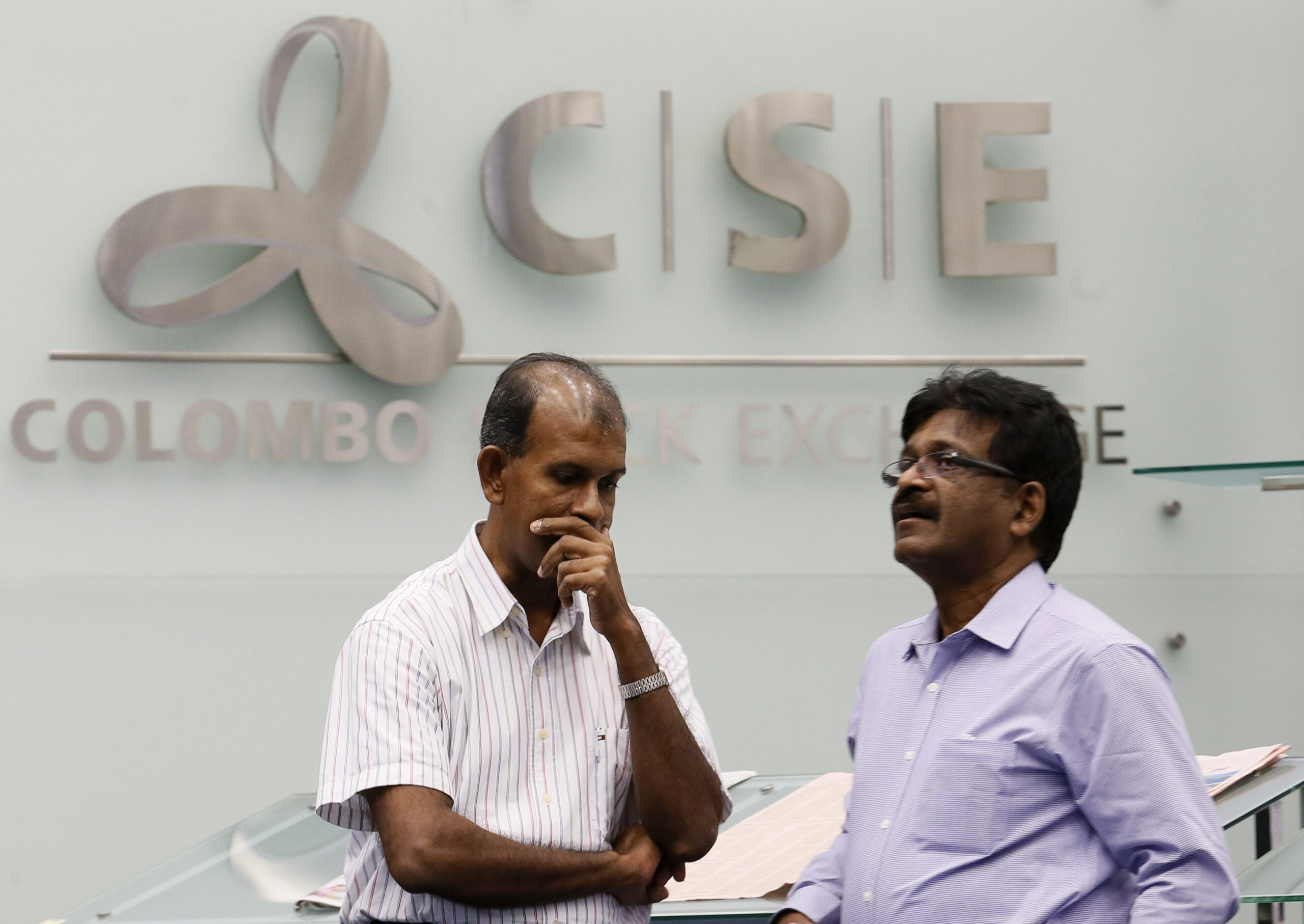The period between 2022 and 2024 for the Colombo Stock Exchange was characterized by resilience in the face of global and domestic challenges. While volatility was a significant factor, the market also showed signs of adaptability and potential for recovery. The performance of the CSE during these years underscores the importance of diversification, informed investment strategies, and the impact of external economic and geopolitical factors on emerging markets. Investors and stakeholders continue to monitor these trends closely, with an eye towards navigating future uncertainties and capitalizing on growth opportunities.
Key Trends and Performance Indicators
Volatility: The period from 2022 to 2024 was marked by significant volatility within the CSE, reflective of global economic uncertainties, including the aftermath of the COVID-19 pandemic, geopolitical tensions, and fluctuating commodity prices. This volatility impacted investor sentiment and trading behaviors.
Index Performance: The All Share Price Index (ASPI) and the S&P Sri Lanka 20, which are key benchmarks for the CSE, experienced fluctuations corresponding to these broader economic conditions. The ASPI, which includes all listed companies on the CSE, showed varying degrees of performance, reflecting the overall sentiment and economic conditions affecting the market.
Sector Performance: Different sectors experienced varying levels of performance based on specific challenges and opportunities. For instance, the technology and healthcare sectors might have shown resilience or growth due to increased demand for digital solutions and healthcare services. In contrast, sectors heavily dependent on global markets, such as tourism and exports, may have faced more significant challenges due to global economic slowdowns and disruptions.
Influencing Factors
Economic Policies: Monetary policy adjustments, fiscal policies, and regulatory changes in Sri Lanka, including interest rate changes and tax incentives, have directly influenced market liquidity and investor confidence.
Global Economic Environment: International trade tensions, monetary policy shifts in major economies (e.g., the Federal Reserve in the United States), and global economic recovery patterns have impacted foreign investment flows and market performance.
Domestic Challenges: Political instability, policy uncertainty, and economic challenges, including inflation and currency depreciation, have affected domestic investor sentiment and the performance of the CSE.
COVID-19 Pandemic Aftermath: While the acute phase of the pandemic subsided, its economic repercussions continued to affect business operations, supply chains, and consumer behavior, influencing the performance of listed companies.
Market Movements
Recovery Indicators: Despite the challenges, there were periods of recovery and growth, driven by positive earnings reports from certain sectors, policy interventions aimed at stabilizing the economy, and gradual improvements in global economic conditions.
Investor Sentiment: The fluctuating investor sentiment, swinging between optimism in recovery phases and caution during downturns, played a crucial role in trading volumes and market dynamics.
Economic Factors
The economic factors influencing the CSE from 2022 to 2024 highlight the complex interplay between local and global economic conditions. Understanding these factors is essential for investors and policymakers alike, as they navigate the challenges and opportunities presented by the evolving economic landscape. The period underscored the importance of adaptive strategies and proactive management of economic fundamentals to foster a stable and growth-oriented market environment.
The performance of the Colombo Stock Exchange (CSE) from 2022 to 2024, like any stock market, was significantly influenced by a variety of economic factors. These factors not only affected investor behavior and market dynamics but also the broader economic outlook for Sri Lanka. Here’s an analysis of the key economic factors that played a role during this period:
Inflation
Inflation has a dual impact on stock markets. On one hand, moderate inflation may indicate a growing economy, which can be positive for company earnings and stock prices. However, high inflation rates, as observed during this period, often lead to increased costs for companies, reduced consumer purchasing power, and uncertainty in investment returns. For the CSE, rising inflation led to cautious investing, with many turning to inflation-hedged assets or sectors less impacted by rising prices.
Interest Rates
The Central Bank of Sri Lanka’s monetary policy, particularly interest rate adjustments, had a direct impact on the CSE. Higher interest rates generally lead to higher borrowing costs for companies and consumers, potentially slowing economic growth and reducing corporate profits. This often results in lower stock prices. Conversely, lower interest rates can stimulate economic growth but may also signal concerns about the economy’s health. During this period, fluctuating interest rates reflected attempts to manage inflation and stimulate economic activity, influencing investor sentiment and market performance.
Exchange Rates
The Sri Lankan Rupee’s exchange rate against major currencies affects the CSE in several ways. Depreciation of the Rupee can make exports more competitive but increases the cost of imports, affecting companies with significant import costs. It also impacts foreign investment, as depreciation can erode foreign investors’ returns when converted back to their home currency. This period saw notable fluctuations in the exchange rate, impacting both the market and the broader economy.
Global Economic Conditions
Global economic trends, including trade policies, geopolitical events, and economic performance in key markets (e.g., the United States, European Union, and China), influence the CSE. Sri Lanka’s economy, being relatively small and open, is particularly sensitive to these external shocks. The period from 2022 to 2024 was marked by significant global uncertainties, including trade tensions and the ongoing impacts of the COVID-19 pandemic, affecting global and local market sentiment.
Domestic Economic Stability
Domestic economic stability, encompassing factors like GDP growth, unemployment rates, and fiscal policies, plays a crucial role in shaping the investment landscape. During this period, challenges such as political instability, policy uncertainty, and fiscal deficits contributed to market volatility. Efforts to address these issues, including reforms and stabilization measures, were closely watched by investors for their potential impact on the market.
Foreign Direct Investment (FDI]
FDI flows into Sri Lanka have a substantial impact on economic growth and, by extension, the stock market. FDI can enhance market liquidity, contribute to the growth of key sectors, and signal international confidence in the Sri Lankan economy. Fluctuations in FDI, influenced by both global economic conditions and domestic policies, were a notable factor during this period.
Investor Behaviour
Investor behavior in the Colombo Stock Exchange from 2022 to 2024 was significantly shaped by economic uncertainties, both locally and globally. The trend towards risk aversion, interest in defensive and high-dividend stocks, the impact of digital trading platforms, and the withdrawal of foreign investors have all played crucial roles in defining the market landscape. As the market evolves, understanding these behaviors will be key to anticipating future trends and crafting strategies to navigate the complexities of the investment environment.
Investor behavior in the Colombo Stock Exchange (CSE) over the period from 2022 to 2024 offers an intriguing look into how external and internal factors influence market participation and investment strategies. This behavior is crucial to understand market dynamics, as it directly impacts liquidity, volatility, and overall market performance. Here’s an analysis focusing on key aspects of investor behavior during this period:
Response to Market Volatility
Investors in the CSE have shown a heightened sensitivity to market volatility during this period. The fluctuations were primarily driven by local economic challenges, global uncertainties, and geopolitical tensions. In response, there was a noticeable trend towards risk aversion, with investors gravitating towards safer, more stable investments or withdrawing from the market to hold cash. This behavior is typical during periods of uncertainty, as investors aim to protect their capital from unpredictable losses.
Shift Towards Defensive Stocks
Amidst the volatility, there was a clear shift in investment towards defensive stocks — those in sectors like utilities, healthcare, and consumer goods, which tend to be less sensitive to economic cycles. These sectors are perceived as offering safer investment havens during turbulent times, as their performance is not directly tied to the economic downturns.
Interest in High-Dividend Stocks
Investors also showed an increased interest in high-dividend stocks as a strategy to secure steady income streams in the face of uncertain market gains. This behavior reflects a broader trend towards seeking out investments that can provide regular, reliable returns in a market characterized by unpredictability and low interest rates on traditional savings accounts.
Impact of Digital Trading Platforms
The period also saw an increase in the use of digital trading platforms and online brokerage services, making stock market participation more accessible to a broader audience. This democratization of investing led to a surge in retail investor participation. However, the influx of less experienced investors has also contributed to increased volatility, as decisions made by these investors may be more influenced by short-term market
movements and social media trends rather than long-term fundamentals.
Foreign Investor Withdrawal
Foreign investors, who play a significant role in the liquidity and dynamics of the CSE, showed a pattern of withdrawal or reduced activity during this period. This trend was influenced by global economic conditions, the search for safer investment havens, and concerns over local currency depreciation and economic stability. The withdrawal of foreign investment contributed to reduced market liquidity and heightened volatility.
Adoption of ESG Criteria
There has been a growing interest among investors in Environmental, Social, and Governance (ESG) criteria when making investment decisions. This shift reflects a broader global trend towards sustainable investing, driven by a recognition of the long-term risks associated with environmental and social issues. ESG-focused investing has started to influence how companies are evaluated and selected for portfolios, promoting more responsible business practices.

